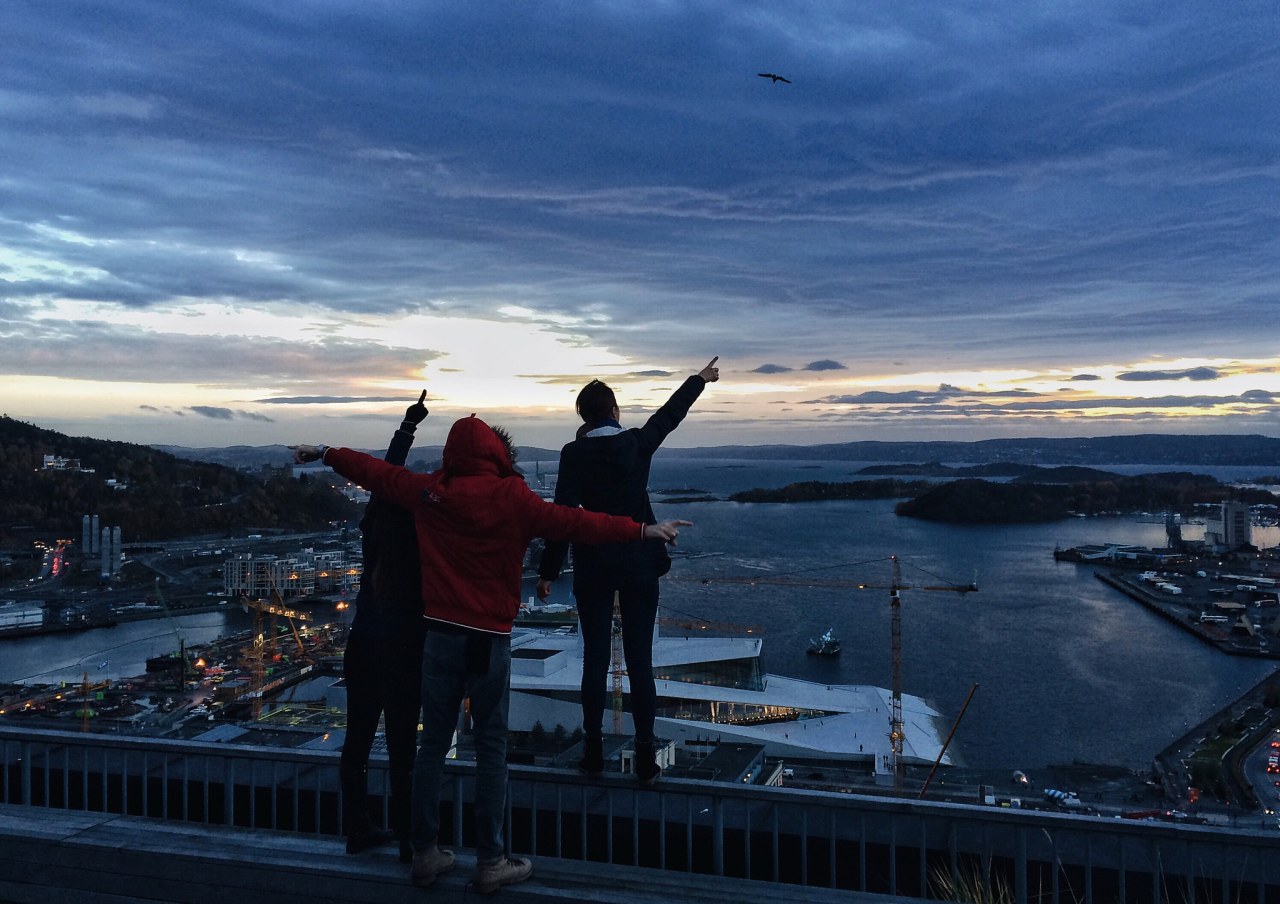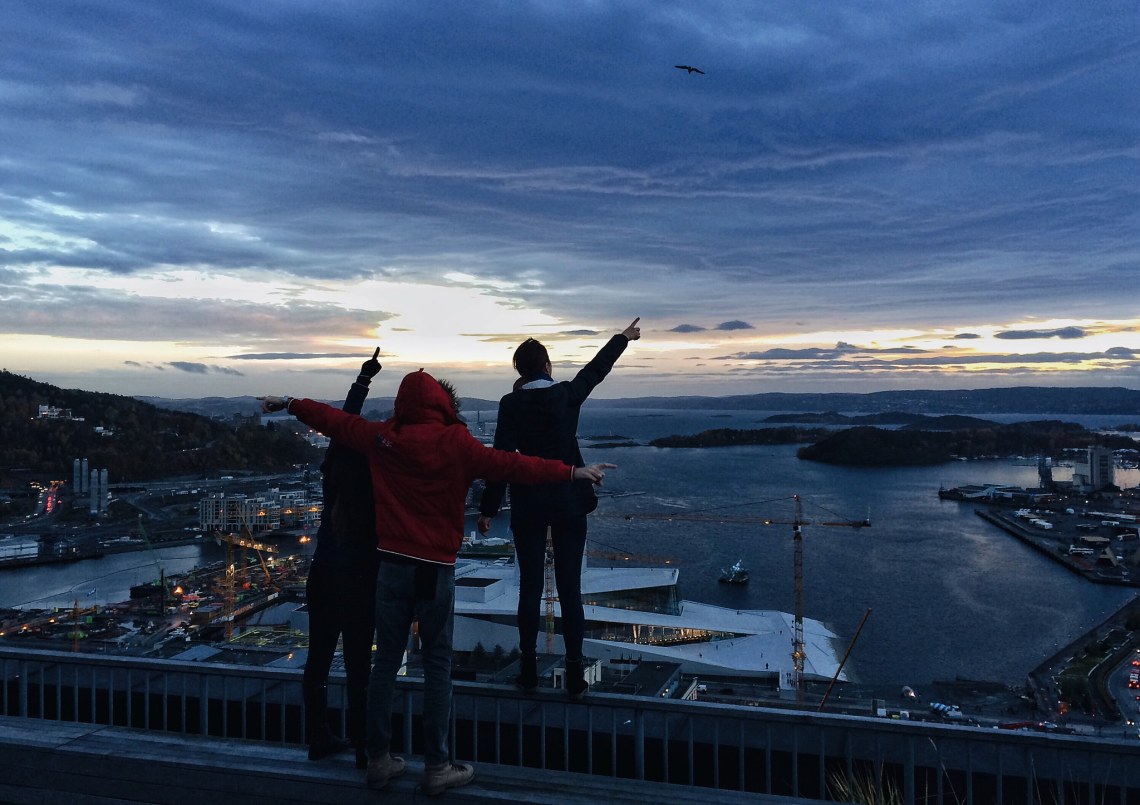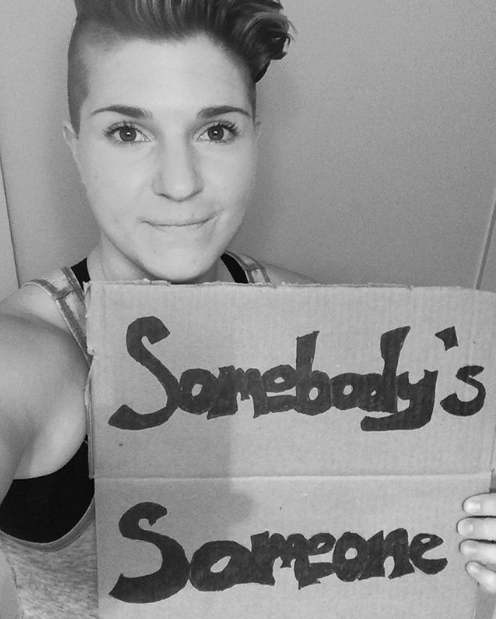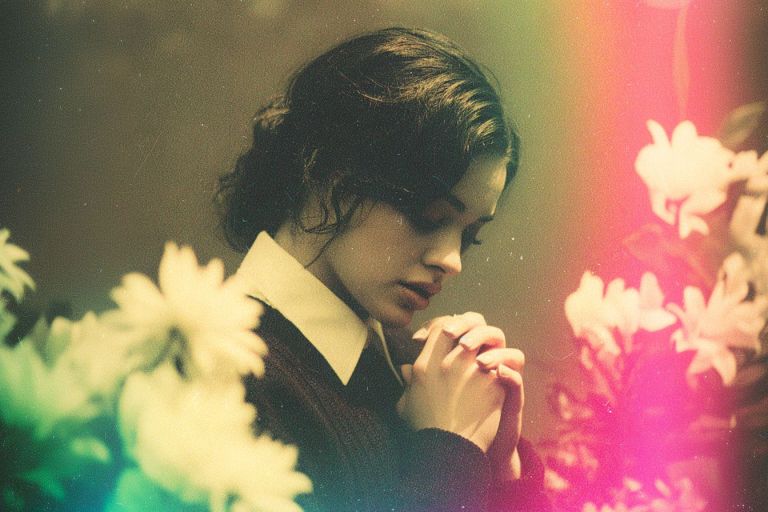
You Are Somebody’s Someone, You Are Not Alone
No matter our journey, what connects us is this—the idea that no matter who we are, where we are, or what’s going on in our lives—we are not alone.

This world can be so painful. There is heartbreak and mistrust, broken promises and defeat. There are moments when we fall victim to vices, spinning wildly out of control. There are days when we struggle to rise, when we lose our footing completely, when we slip and fear we don’t have the strength to continue.
There are days when we just want to give up.
And yet, we have to remember that there is hope, even in all the loss. That there is beauty, even in all the brokenness. That there is strength to be found in the moments we are the lowest, or most vulnerable. That we can and will overcome whatever we’re facing with help, with support, with love, with faith, and with choosing to push on, even when every bone in our body aches.
We must remember that we are somebody’s someone. And so deserving of life and love.
And when we are broken, we must cling to this: We matter. To the people who love us. To the ones who raised us. To the friends that will forever have our backs. To the people whose lives we touch. To the strangers who may not know us, and yet still feel connected to our struggle.
We are not alone.
In her song, ‘Somebody’s Someone,’ singer Daphne Willis expresses this feeling. As a person who struggles with mental illness, she shares the importance of seeking help, of reaching out to people when you need support, of understanding that asking for someone to be there for you does not equate to weakness, and of realizing that you are no, and never will be alone.
The open line of ‘Somebody’s Someone’ is, ‘bright light on the corner of a dark street.’ This is a reminder to all of us. We are capable of being bright, even in our lowest moments.
We may fall, we may break, we may be at our absolute worst, but there is still hope.
Her song is an expression of her experiences with mental illness and addiction. As someone who fights clinical depression, she said that she self-medicated for a long time with drugs and alcohol, finding herself only falling deeper into a place of isolation, guilt, and fear. Her song became a reminder not only to herself, but to all of us—there are people who care about us, and we can, and should reach out to them.
We don’t have to face all our demons alone.
Sometimes when we’re discouraged, hopeless, tired, we think that we’re a burden to others. We’re so worried about how our pain will make us needy, or asking for help gives others the impression that we are pathetic and weak.
“We view reaching out to others and talking about our pain as weakness,” Willis says, “And it’s actually the other way around. It’s strength.”
Through her music, Willis seeks to empower people as she continues to fight forward in her journey. A year and almost five months ago, she stopped drinking, and as she puts it, ‘came out of a black hole.’ Her music was integral in her recovery process, saving her not only from self-destructive habits but allowing her to be vulnerable and to really experience emotions in order to work through them.

“Depression and mental illness are issues that are hard to talk about,” she says, “They’re painful, they’re sad. But my experience has been that when you acknowledge those emotions and sit with them and really feel them, you realize that it’s okay to be sad it’s okay to be mad.
And all those things we think are really negative emotions are actually a part of the spectrum of who we are. And I think we need to see them in more of a positive light they don’t become so dark.”
“When you’re okay with your painful emotions and can feel them, and be okay with them, they’re not so big and they’re not so bad.”
And her words speak truth to all of us. Sometimes when we’re down, we find ourselves lost in a spiral in our own heads. We believe that we don’t have the ability to rise from the place we’re in. We quickly forget all that we’ve overcome. And we find ourselves wanting to seclude ourselves, rather than reach out for help. Which is our biggest mistake.
“I spent a lot of my life being afraid of my own brain which is scary thing to be afraid of,” Willis says, “A lot of people feel isolated and alone in what they feel, and my music is just a reminder to myself, and to others, that we’re all kind of in the same boat as humans.”
And she’s absolutely right.
We all have battles we’re fighting, demons we’re facing, challenges we’re working to overcome. We all have days when we don’t think we can continue, when we’re afraid of our next steps, when we have lost everything, even our ability to believe in better days.
Some of us have these days less frequently than others. Some of us have clinical depression or a mental illness that changes the way we see the world every single day.
But no matter our journey, what connects us is this—no matter who we are, where we are, or what’s going on in our lives—we are not alone.
We are all somebody’s someone. We are all loved and supported by family, friends, and strangers. We are all worthy of happiness, of support, of better days.
And we must allow ourselves to feel the emotions we’re feeling, to reach out to the people around us, to sing our hearts out, to be vulnerable, and to heal—one step, one song at a time. ![]()











